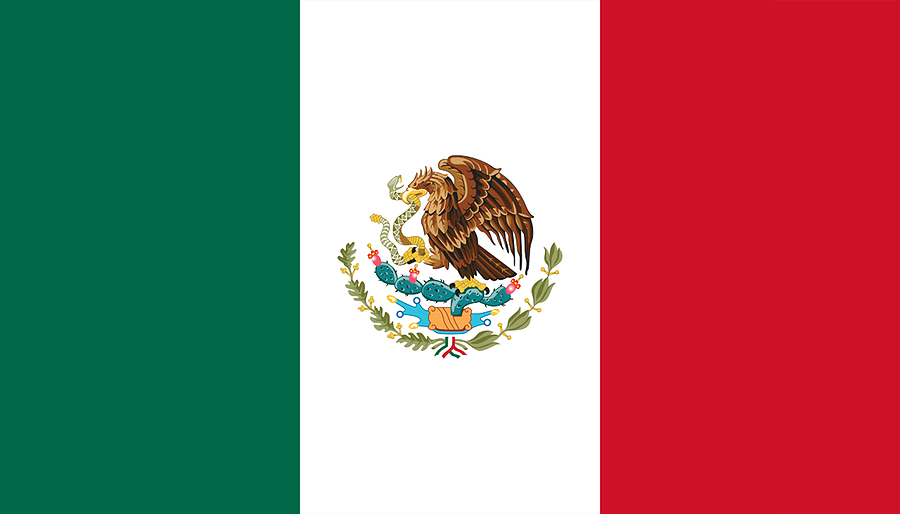
Facility Opens in Cuautla, Mexico
Greenback Recycling Technologies, a British company, in collaboration with Nestlé Mexico, opened an advanced recycling plant in Cuautla at the end of May. This is only the first step as there are plans to implement chemical recycling technology in other regions of Mexico, Latin America, and in other global locations with excess plastic waste.
“I founded Greenback to reduce the environmental impact of the growing amounts of plastic packaging that is not recycled,” Greenback CEO Philippe von Stauffenberg states. “We have created the first industrial, fully circular value chain for flexible post-consumer packaging. With our voluntary extended producer responsibility program, consumer goods companies contract Greenback to pay collectors and sorters to deliver previously worthless plastic [scrap] in exchange for neutralization certificates.”
By utilizing microwave-induced technology created by U.K.-based Enval, Greenback is revolutionizing the ability to recycle flexible packaging plastics in several ways. The process includes the conversion of these plastics into pyrolysis oil that can be used as recycled content in new food packaging, and allows for the recycling of aluminum elements found within multilayered flexible packaging.
The three firms report that the plant is set to process up to 6,000 metric tons of scrap materials during its initial operational year, with potential for further expansion and increased capacity.
Nestlé Expands Outside of Europe
This partnership is a new venture for Nestlé, a Switzerland-based firm, the agreement focuses on plastic packaging that is not normally recyclable. This pact targets cyclicality when it comes to food grade plastics. It is hoped that by meeting both technical and commercial standards, recycling efforts will be improved significantly.
“We are proud of this partnership,” von Stauffenberg reflects positively of working with Nestlé Mexico. “We know that only by working together across the value chain, we can achieve a real circular economy that contributes to the health, safety and livelihoods of the local communities.”
“We are very proud to inaugurate this pyrolysis oil plant, which will allow us to spearhead testing new methods to handle postconsumer urban [scrap] in Mexico,” Fausto Costa, Nestlé Mexico Executive President includes. “It is a well-known fact that the success of packaging materials in the circular economy depends on having a solid collection, sorting and recycling infrastructure and the design of the packaging to be recycled. Today, as we partner with Greenback Recycling Technologies, we take another step in making this a reality.”
Alliance to End Plastic Waste Supports Greenback
Greenback also has the backing of the Singapore-based Alliance to End Plastic Waste, an organization dedicated to finding ways to put plastics back into circulation all over the world.
“The Greenback team has been able to conceptualize a modular solution that can be co-located with landfills and material recovery facilities to tackle complex and hard-to-recycle, flexible materials,” the chief advisor to the Alliance to End Plastic Waste, Natalie Stirling-Sanders, says.
“It is the combination that is most exciting to us, as we are looking to find solutions that drive plastics circularity and have the potential to be replicated,” she explained.
Greenback Partners with Ecoveritas
Greenback is leveraging the expertise of U.K.-based Ecoveritas to use a circularity platform for gathering information such as origin and quantity of processed materials. This platform allows the firm to issue certification for brands and consumer packaged goods producers that validates sources of origin and circularity.
“Making safe recycled plastics for food packaging is a huge challenge for our industry,” Nestlé Mexico CEO, Fausto Costa, states. “This project with Greenback and Enval fully supports the mission of ensuring that our plastic packaging is not only recyclable but [is] actually recycled. It also ensures that we are drastically reducing plastic waste pollution and supports our work with local communities.”
Carlos Ludlow-Palafox, the founder and CEO of Enval, also notes, “This project demonstrates the importance of collaboration between companies at different stages of the supply chain to tackle the challenge of plastics in the environment. Our technology allows the recycling of packaging that was previously considered unrecyclable, and we are delighted that our first plant, in collaboration with a fast-moving consumer goods (FMCG) company as committed to sustainability as Nestlé and in partnership with Greenback, will be soon operating in Mexico.”
von Stauffenberg concludes, “This project in Mexico will tackle the unresolved problem of turning multilaminate and mixed plastics that are difficult to recycle into a recyclable [scrap] stream.”
